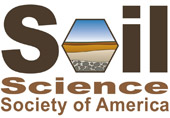Soil Quality Assessment Methods for Healthy Soil & Sustainable Food Production.
Soil Quality Assessment Methods for Healthy Soil & Sustainable Food Production.
Poster Number 1
See more from this Division: PosterSee more from this Session: Food, Energy and Water Security
Friday, March 7, 2014
Grand Sheraton, Magnolia Foyer
Soil quality is the foundation of sustainable food production. Soil quality assessment helps to determine the status of soil functions and environmental risks associated with production practices. Depending on what we do and how we treat our soil, we may improve or impair long-term soil health and productivity of the soil. Soil quality can be assessed indirectly using indicators (also referred here soil properties) of soil condition on different scales in a given time frame. Soil has physical, chemical and biological components. Indicators developed from these components should be measureable, simple and sensitive to management intervention intended to bring an indicator or group of indicators to an acceptable level. Many soil quality indicators are vital to the proper function of the whole system. All indicators of soil quality must be at optimum levels for the system to work properly. To assess soil quality, it is important to know reference or standard values, develop scoring system, gather calibration and test data, apply the scoring system, and develop intervention tools to bring or maintain soil quality at optimum level.
See more from this Division: PosterSee more from this Session: Food, Energy and Water Security
Previous Abstract
|
Next Abstract >>
